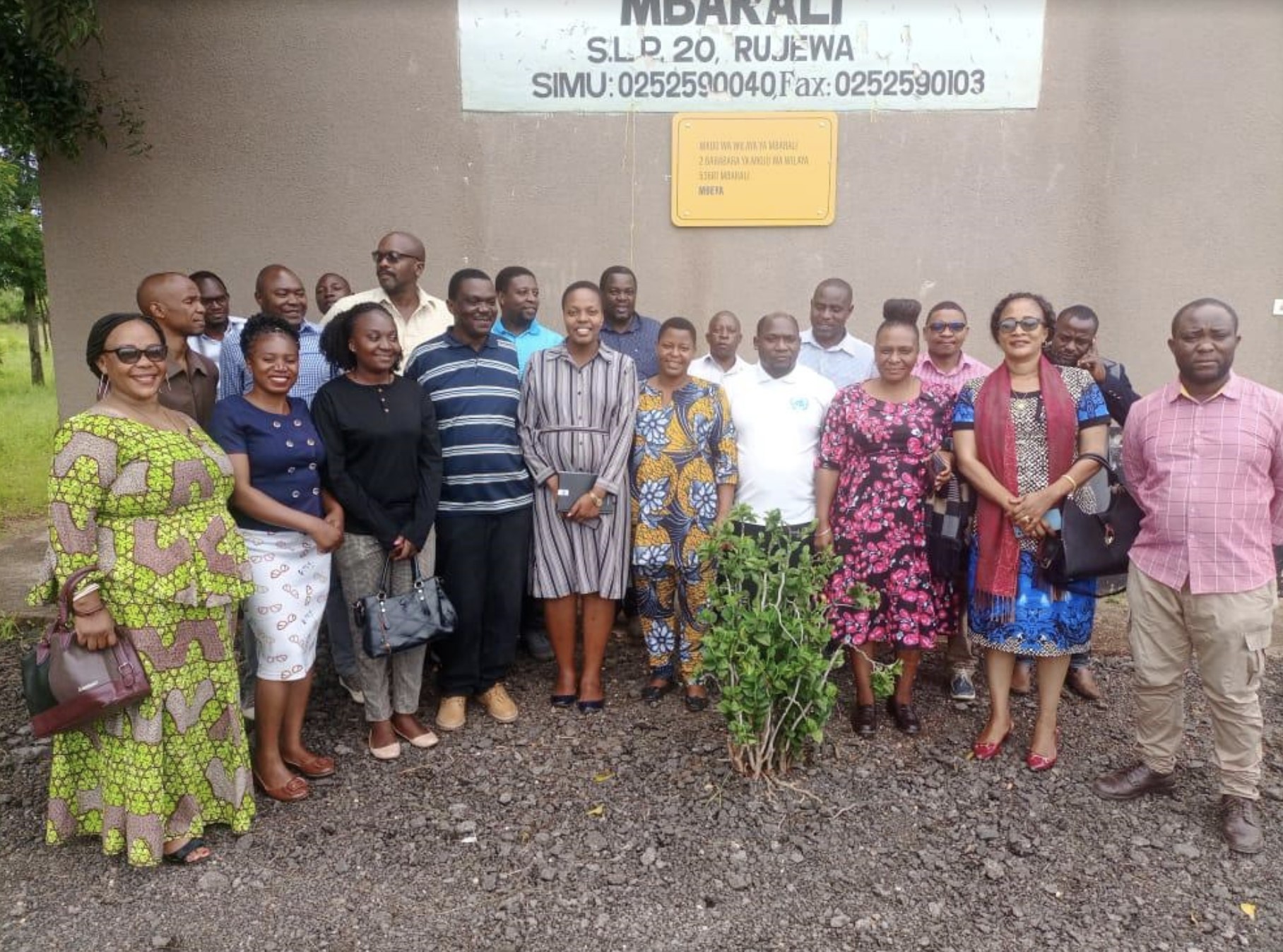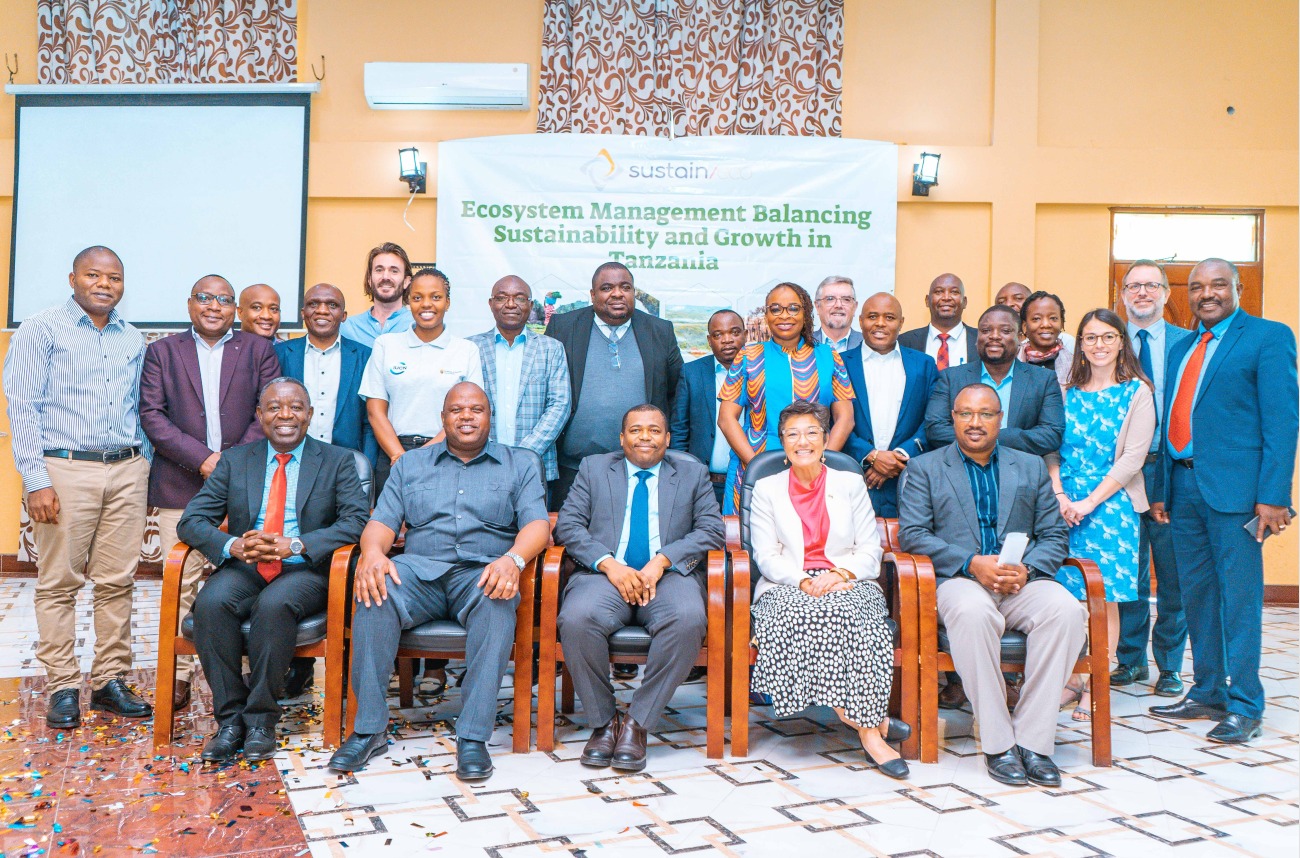Empowering women through animal husbandry as Ilalasimba village in Tanzania yields improve by over 400% through forest landscape restoration
Women in Ilalasimba village, located in the Iringa Region of Tanzania, engage in economic activities, focusing mostly on agriculture.

Amina Mtuya stands beside cattle on her farm in Ilalasimba village, Iringa Region, Tanzania.
The project team visited women in the village to check on the work they have been doing with The Restoration Initiative and spoke with Amina Mtuya, aged 54 years, a housewife engaged in raising livestock.
Read her story below.
“For many years, I have been living on subsistence farming. Due to low yields, I highly depended on forest resources for collecting firewood for household use and income. We have used a small number of cattle to graze freely in the forest reserve. We noticed the trend of a declining landscape but cared more about our well-being and our livestock.
As farmers, we had challenges – inadequate rains, poor farming practices, deteriorating soils and pests and diseases. All these resulted in very low yields. Our cattle did not increase in numbers as anticipated due to limited access to nutritious fodder and inadequate extension services. I could hardly get a litre of milk per cow per day. The combined income from crop and milk sales couldn’t help meet family needs.
I heard about The Restoration Initiative at a community meeting organised to sensitise villagers on environmental protection and sustainable livelihood practices. TRI’s community development officer called for community participation in this project to help address land degradation and improve our livelihood. I was glad to learn that the project planned to support environmentally friendly income-generating activities. I mobilised other community members to be ready to participate in this opportunity.
Through TRI, fellow members of our women's group and I were supported with three improved local cattle breeds and received training on raising them. We were trained to grow fodder for livestock and apply climate-smart agriculture (CSA) practices and technologies. We were further supported in post-harvest management and marketing of milk.
With TRI support, milk yield has increased more than five-fold from 1-2 litres to 10 litres per cow daily. In terms of revenues, based on an average price of TZS 950 (USD 0.41) per litre, this represents an increment in revenues from TZS 1,900 (USD 0.8) to TZS 9,500 (USD 4.1) per cow per day. We are excited to get this much milk and income from fewer cattle. In this early stage of the TRI Project, my life is transformed".
She spoke on how her community has also been impacted or changed because of being a part of The Restoration Initiative.
She continued, “We are just at the beginning. Rearing improved local cattle is a new thing to us in this community. We are seeing the value of this project, and so are many community members, particularly women and youth. Other villagers are contacting us and the district officials to connect in this initiative. More agro-pastoralists are eager to convert to sustainable livestock management practices to reduce encroachment and degradation of the forest reserves and water sources."
She went further to provide insights into her plans - “We are now operating as a group, which is a farmer field school in our community. Our plan, however, is for each group member to have their own cattle. We are keen to intervene along the milk value chain and explore a bigger market for our products. We are opening a fodder farm to meet the pasture needs of our cattle and sell the remaining to other villagers. While doing this, CSA will be the way to go in agriculture while also actively protecting our forest resources and water sources."
She concluded, “TRI is a miracle. We are so proud of what they have done and are planning to do in the future. Our lives are forever changed. Our livelihoods are saved. Our environment is undergoing restoration”.
The TRI Tanzania project has strengthened governance mechanisms and capacities for sustainable land management, with over 3,826 community members (2,038 men and 1,788 women) already directly benefitting from capacity-building opportunities on climate-smart agriculture (crop, livestock, fisheries), sustainable forest management and sustainable livelihoods initiatives.



